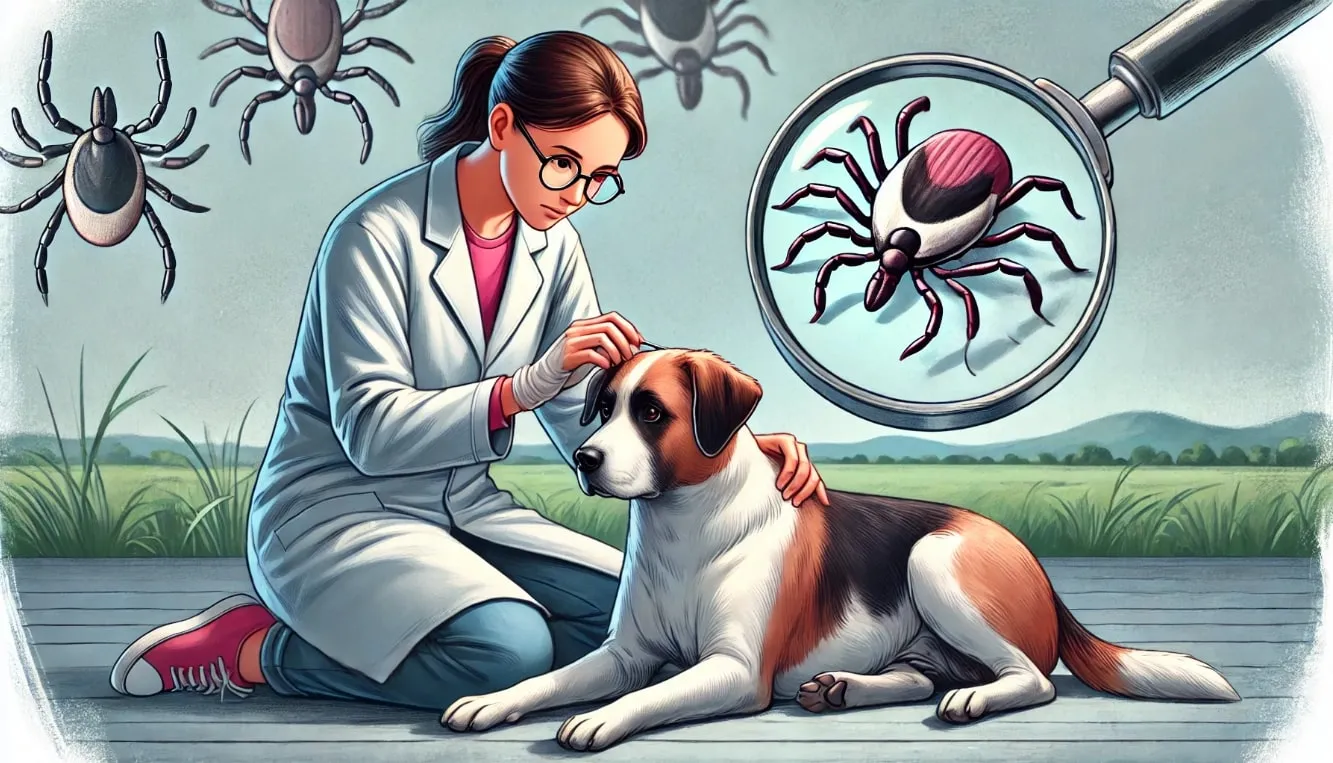Tick Fever in Dogs

Tick Fever, also known as Canine Ehrlichiosis, is a serious condition caused by tick bites. It’s essential for dog parents to understand the symptoms, causes, prevention, and treatment of this disease to ensure their dogs stay healthy and happy.
What is Tick Fever?
Tick Fever is an infectious disease transmitted by ticks, particularly the brown dog tick. The disease is caused by a bacterium called Ehrlichia canis, which infects and destroys white blood cells, leading to a weakened immune system.
Symptoms of Tick Fever
Tick Fever can present with a range of symptoms, which can vary depending on the stage of the disease:
Acute Stage
- Fever
- Swollen lymph nodes
- Lethargy
- Loss of appetite
- Weight loss
- Bleeding disorders (nosebleeds, bruising)
Subclinical Stage
- This stage can be asymptomatic, where the bacteria remain dormant in the spleen.
- Dogs may show no visible symptoms but can progress to the chronic stage if untreated.
Chronic Stage
- Severe weight loss
- Anemia
- Eye problems (inflammation, discharge)
- Neurological issues (seizures, ataxia)
- Joint pain and lameness
Causes of Tick Fever
The primary cause of Tick Fever is the bite of an infected tick. Dogs that spend a lot of time outdoors, especially in areas with tall grass or woods, are at higher risk. Ticks can attach to a dog’s skin and feed on its blood, transmitting the bacteria in the process.
Prevention of Tick Fever
Preventing tick bites is the best way to protect your dog from Tick Fever:
- Tick Control Products: Use veterinarian-recommended tick preventatives such as spot-on treatments, tick collars, and oral medications.
- Regular Grooming: Check your dog regularly for ticks, especially after outdoor activities.
- Environmental Control: Keep your yard clean and free from tall grass and leaf litter where ticks thrive.
- Avoid Tick-Infested Areas: Be cautious when taking your dog to areas known to have high tick populations.
Treatment of Tick Fever
If your dog is diagnosed with Tick Fever, prompt treatment is crucial:
- Antibiotics: The primary treatment is a course of antibiotics, typically doxycycline, prescribed by your veterinarian.
- Supportive Care: Depending on the severity, your dog may need additional supportive care such as fluids, blood transfusions, and medications to manage symptoms.
- Follow-Up: Regular follow-up visits with your vet are essential to monitor your dog’s progress and ensure the infection is fully cleared.
When to See a Vet
If you notice any symptoms of Tick Fever in your dog, seek veterinary care immediately. Early diagnosis and treatment can significantly improve the prognosis and prevent the disease from progressing to a chronic stage.
Conclusion
Tick Fever is a serious but preventable condition. By taking proactive measures to protect your dog from ticks and being vigilant about symptoms, you can help ensure your dog stays healthy and free from Tick Fever. For more information or if you have any concerns, consult your veterinarian.
For more information or support, join our Pack Platform to connect with other dog parents and experts.